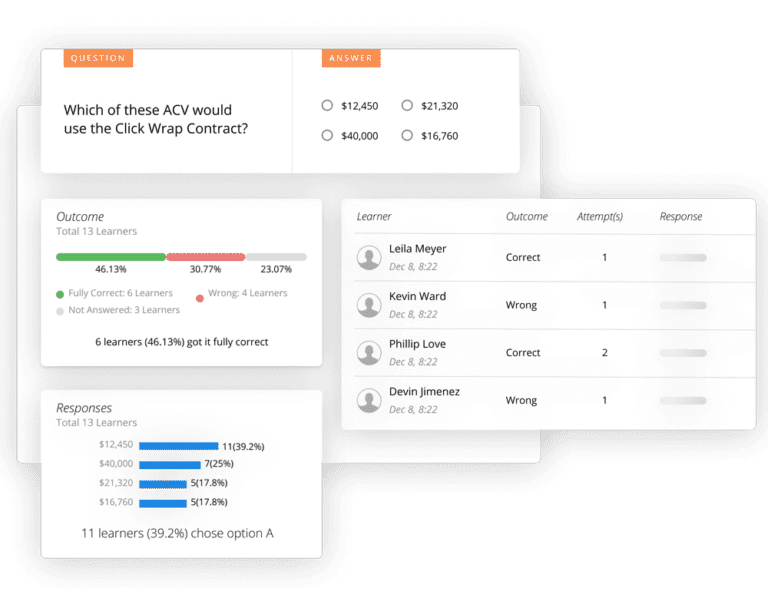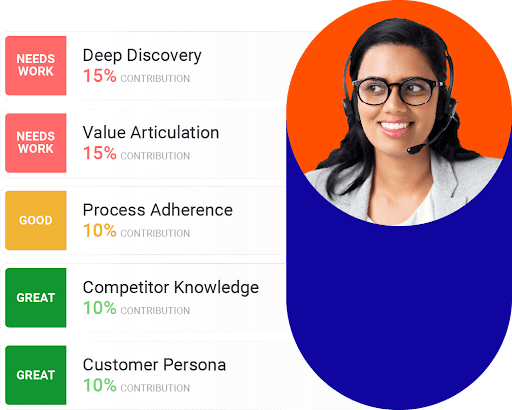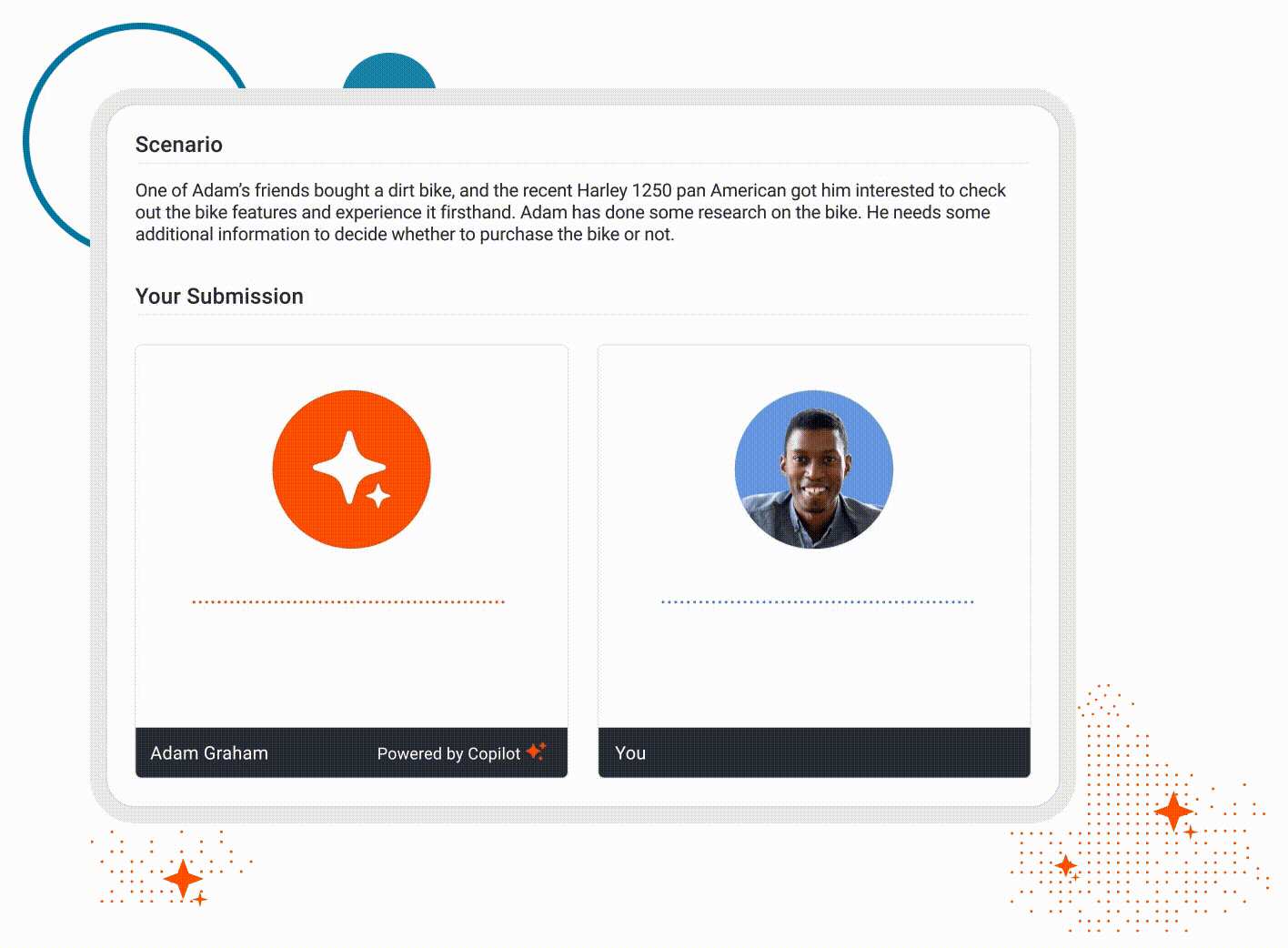What is Sales Execution? (and How to Improve Yours)
![]() Kevin Atkinson
on
November 4, 2024
Kevin Atkinson
on
November 4, 2024
Nowadays, organizations invest in many strategies and tactics, hoping to boost the bottom line. But increasing the effectiveness and efficiency of your go-to-market team is the most surefire way of growing revenue.
Sales execution is key to ensuring your teams can close more deals faster.
But what is sales execution? And how can you leverage this strategy to drive greater revenue growth? Read on as we answer these questions and explore everything you need to know about building a winning sales execution strategy.
What is sales execution, and why does it matter?
Sales execution is important for every revenue team. But often, there’s confusion about what this term means.
So, let’s start by defining what it is and why it matters.
What is sales execution?
Sales execution describes an organization’s processes and activities for guiding a prospective customer through the sales funnel. Essentially, it involves everything that leads up to a deal being closed—from the campaigns that generate interest to how sales reps engage with prospects during different phases of the funnel—and everything in between.
Why is sales execution important?
B2B buyers have high expectations and an overwhelming amount of choice. They’re only willing to buy from businesses that meet (or exceed) their expectations, understand their needs, and help them solve their unique challenges.
Of course, offering the right products and services at the right price matters. But delivering great customer experiences is just as important. After all, recent research found that four out of five customers feel a company’s experience is just as important as its products and services.
A solid execution strategy ensures you have the right process and structures to meet your customers’ needs – no matter where they are on the purchase journey. When you can consistently address your prospects’ needs, they’re more likely to convert to customers. In other words, your teams will be able to close more deals.
In addition, an optimized strategy streamlines the sales process and removes friction. That accelerates the sales cycle, allowing your sellers to close deals faster.
The bottom line is, that with a winning plan, you can grow revenue – faster.
How do you create a sales execution strategy?
Sales execution is key to maximizing revenue growth. But getting started with sales execution can seem overwhelming.
It doesn’t have to be. In reality, sales execution is a rather simple concept.
Let’s examine the key steps to developing an effective strategy.
1. Define your target audience
Your customers’ needs and expectations must be at the heart of your sales execution strategy. So be sure to step back to determine your target audience, their needs, and what they care about.
Start by developing ideal customer profiles (ICPs), which outline the characteristics of organizations that best suit your solutions. Your ICPs might include company size, industry, and geographic location.
In addition, be sure to create buyer personas, which provide fictional representations of the folks you’re likely to interact with at those ideal companies. For example, if you’re selling a marketing automation platform, you might interact with stakeholders in marketing, sales, and sales operations. Each of these stakeholders will have different needs and priorities.
2. Map the customer journey
You must map the customer journey once you’ve defined your ideal prospects. This will help you understand customers’ paths and the steps necessary to execute a sale.
Then, you can identify opportunities to simplify and streamline these sales execution steps.
3. Create your sales execution plan
After you’ve mapped the customer journey, it’s time to create your plan. This will serve as your roadmap for attracting prospects, engaging with them throughout the purchase journey, and closing deals.
4. Build your pipeline
To deploy your sales execution strategy, you must have leads and prospects in the pipeline. There are several ways you can fill your sales pipeline, including:
- Cold calls and emails
- Engaging with potential prospects on social media
- Marketing campaigns and content
- Referrals from current customers
Remember: it’s about quality rather than quantity. Fewer qualified leads are better than a larger number of unqualified leads.
5. Measure and optimize continuously
Your sales execution strategy isn’t something you can create once and never think about again. Instead, it’s an iterative process.
Be sure to track key metrics on an ongoing basis. Then, use those analytics to optimize your sales execution plan. With ongoing, data-based improvements, your sales execution strategy will be even more effective in achieving your revenue optimization goals.

How can you improve your sales execution process?
Chances are, you’ve already completed some (or even all) of the foundational work required for effective sales optimization. But even the most successful revenue teams have opportunities to improve their execution process.
Let’s look at a few impactful ways to boost your B2B sales execution – and your bottom line.
Ensure cross-functional alignment
Sales execution isn’t the responsibility of one person or one team. Instead, many different teams play a role in it, including:
- Sales
- Marketing
- Sales operations
- Revenue enablement
It’s important to ensure these key teams are aligned. Consider holding standing meetings to ensure everyone is on the same page regarding goals and their role in achieving them. When everyone is aligned, you’re better positioned to deliver great experiences to your prospects, which means you’ll win and retain more customers.
Refine your messaging
If your messaging doesn’t resonate with your target audience, they won’t engage with you. It’s as simple as that.
Revisit your messaging regularly to ensure it aligns with your target audience’s needs, challenges, and expectations. Remember: generic messaging won’t do. If you’re targeting different segments, tailor your messaging for each.
Optimize your pipeline
A key component of sales execution is ensuring your reps spend their time on high-quality leads that are likely to convert.
Look closely at your marketing campaigns to ensure they generate high-quality leads. If they’re not, look for ways to optimize them.
It’s also important to optimize your lead qualification processes. For starters, be sure sellers know how to identify good–quality leads quickly. Also, a lead scoring system should be implemented that assesses people’s readiness to buy based on various factors and behaviors.
Deliver personalized sales training and coaching
Your sales reps play a big role in the success of your execution plan. It’s important to ensure they have the right skills to be successful.
Start by defining the skills each of your customer-facing roles needs for success. Then, measure each person against the appropriate ideal rep profile. Once you’ve identified each seller’s strengths and weaknesses, you can deliver tailored sales enablement and training to drive improvements.

In addition, be sure to provide coaching that addresses the needs of each seller. Sales managers can deliver coaching based on a rep’s performance on calls or in role-plays. Some revenue enablement platforms also leverage artificial intelligence to deliver real-time feedback to reps on their performance.
The most innovative organizations even allow their reps to role-play with AI bots in realistic sales scenarios. Throughout the role-play experience, reps receive feedback that they can use to bolster their skills before engaging with prospects.

Invest in the right sales execution tools and technology
Successful sales execution requires the right tools and technology. For example, sales outreach tools make it easier for sellers to engage with the right prospects at the right time. Sales enablement tools allow you to deliver targeted sales training and coaching to your sellers and measure the impact of your efforts on sales performance. Conversation intelligence tools deliver real-time feedback to your sellers and help sales leaders understand what’s happening in the field.
But investing in a lot of different B2B sales execution tools may not be the right answer. Switching back and forth between all these tools is time-consuming and overwhelming for sellers. Instead, look for integrated sales execution platforms that address several challenges—all in one spot.
Streamline and automate sales processes
Research tells us sellers spend less than 30% of their time selling. Clunky, time-consuming tasks take up the other time.
Look for opportunities to streamline and automate these tedious processes and tasks. For example, use sales execution software to trigger emails if prospects take certain actions. Or, leverage AI to help your sellers draft effective written communication – faster. Organizations can tap into an AI-powered revenue enablement platform to ensure sellers can quickly find proven content for any sales scenario.
By streamlining and automating processes and tasks, sellers can spend more time engaging with prospects and closing deals.
Tap into data to drive ongoing optimization
Ongoing optimization helps ensure your sales execution strategy is as impactful as possible. Data is key to effective optimization.
With the right data, you can understand where (and why) deals are dropping off. For example, a clunky process may be to blame. Or perhaps the seller just hasn’t mastered the essential skills yet. You can leverage this data to make changes – and improve performance.
Chances are, you have no shortage of data. But data can be overwhelming – especially when it resides within many different tools. AI makes it possible to consolidate data, make sense of it, and determine how to take action on it in a way that will improve outcomes.
Learn how Mindtickle can help power your sales execution plan
A solid strategy is essential for any organization looking to grow revenue. With the right sales execution tools and strategy, you can build an efficient sales team that beats quota every quarter.
Today, winning revenue organizations globally leverage Mindtickle to help power their strategies.
Mindtickle is an all-in-one revenue enablement platform that empowers the people behind sales execution. With Mindtickle, your customer-facing roles can access the tools, training, and information they need to engage with any prospect – no matter where they are in the purchase journey.
Optimize sales execution with Mindtickle
Ready to see how Mindtickle can help boost sales execution at your organization?
Request Your Demo

